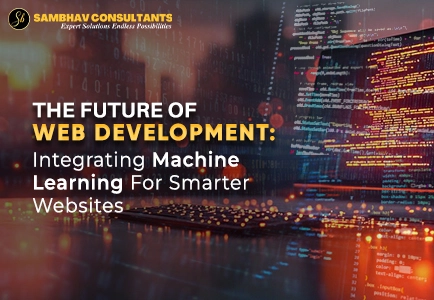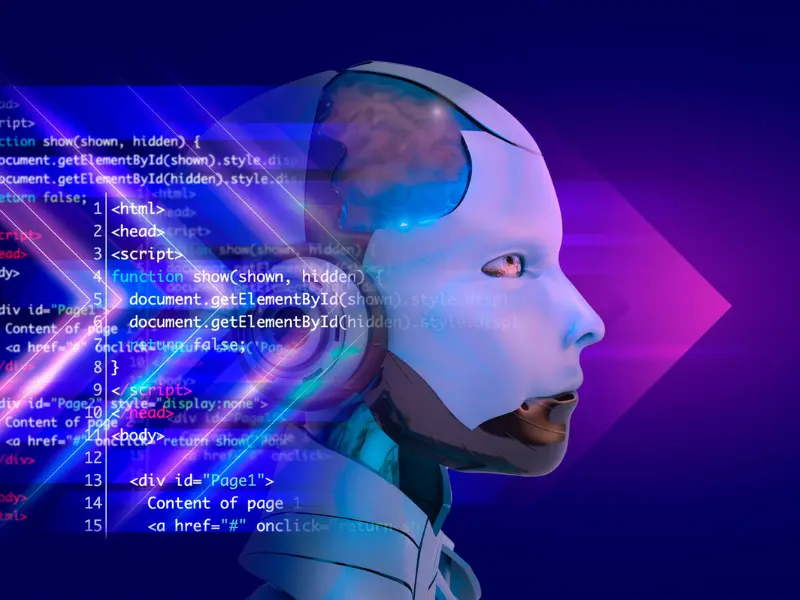

Web development is being enthralled by artificial intelligence (AI) as it serves to optimize website performance, user experience, and interaction. AI makes it possible for content to be personalized as well as the user paths as they are provided for the individual user. Automation makes certain processes such as code reviews and testing more efficient and routine while SEO optimization uses data from artificial intelligence to enhance search engine results’ rankings. AI also strengthens security in that it uses the most sophisticated algorithms to identify and combat threats. Also, it helps in the processing of data, whereby user data is analyzed in real-time to inform the decision- making process. These synergies of AI integration with web development are paving the way for intelligent, adaptive, and efficient solution space for the web.
Advanced technologies in web development platforms are revolutionizing work in this area since they assist in automation and improvement of the user experience. GitHub Copilot helps with code generation and AI design tools enhance UI/UX through an analysis of the user’s behavior. Another advantage of using AI is that content can be arrival-oriented, SEO optimized, and tested for speed in real-time; AI is therefore an indispensable asset when it comes to web development.
Self-enhancement is vital in improving UX since AI can adapt all content to suit the user’s preference. Basically, by using machine learning AI personalizes an interface which in turn engages the users’ interest. Automatic 24/7 chatbots with the possibility of an instant message response support customers, and predictive analytics help to foresee users’ needs. Moreover, there is voice and visual search for products through AI making it easier to access products online. The use of AI makes websites more responsive, and more focused on the user, especially improving the whole UX.


The backend development can now be structured with the help of automatic analysis and high performance through Machine learning (ML) algorithms. Predictive analytics used trends to make recommendations in resource distribution while anomaly detection used unusual patterns to increase security. User experience is enhanced by, Natural Language Processing (NLP) for chatbots and recommendation engines for recommendations. Further, the automated testing for bug detection and eradication by using ML helps in making workflows faster and achieving scalable and efficient solutions in the backend.
Machine learning algorithms analyze traffic patterns to identify anomalies.
Enables immediate detection of suspicious activities and potential breaches.
AI enhances multi-factor authentication for added security.
Behavioral biometrics provide advanced user verification methods.
Automated patch management ensures timely updates.
Real-time threat neutralization to mitigate risks promptly.
Machine learning adapts and fortifies defenses by continuously learning from new threats, offering a proactive approach that reduces vulnerabilities more effectively than traditional methods.
Analyzing Data: AI algorithms sift through vast datasets, identifying patterns and trends that humans might miss.
Predicting User Actions: Machine learning models forecast user actions, enhancing personalized experiences and targeted marketing.
Automating Reports: AI systems automate report generation, providing real-time analytics without manual intervention.
Enhancing User Experience: By predicting user needs, AI-driven tools help optimize website layouts and content dynamically.
Detecting Anomalies: AI detects unusual user behavior, helping in fraud prevention and improving security.
Artificial intelligence transforms SEO and content creation by offering data-driven insights and efficiency. Algorithms analyze search patterns, helping tailor content to user intent. AI tools aid keyword research, ensuring optimized visibility.
Enhanced Keyword Analysis: AI can predict trending keywords, improving ranking potential.
Content Personalization: Machine learning customizes content for targeted audiences, boosting engagement.
Automated Writing Assistance: Tools like GPT-4 generate relevant copy quickly, maintaining quality.
Performance Monitoring: AI-driven analytics track content effectiveness, suggesting improvements.
Complexity: Implementing AI algorithms often requires advanced mathematical and statistical knowledge.
Data Dependency: AI models rely heavily on large datasets, which may not always be available or useful.
Cost: Developing and maintaining AI systems can be expensive, involving high computational resources.
Ethical Concerns: Issues such as privacy and bias in AI systems can create significant ethical dilemmas.
Scalability Issues: Ensuring AI scalability to handle large user bases remains a technical challenge.
Maintenance: Regular updates and fine-tuning are necessary to keep AI models effective and accurate.
AI is revolutionizing web development with key future trends. Personalized user experiences will be enhanced through AI-driven content customization, while predictive analysis will optimize performance by forecasting user behavior. Natural Language Processing (NLP) will improve chatbots and voice search capabilities. AI-driven design tools will streamline the design process, and real-time security enhancements will fortify websites against cyber threats. Additionally, AI will automate bug detection, improving software quality and development efficiency.
In conclusion, AI is already making a huge impact in web development with such aspects as auto generation, UX, and security being some of the most impacted areas. As AI-driven tools evolve, web development will become more efficient, personalized, and secure, offering developers the ability to create smarter, adaptive, and user-centric digital experiences that meet the demands of the future.